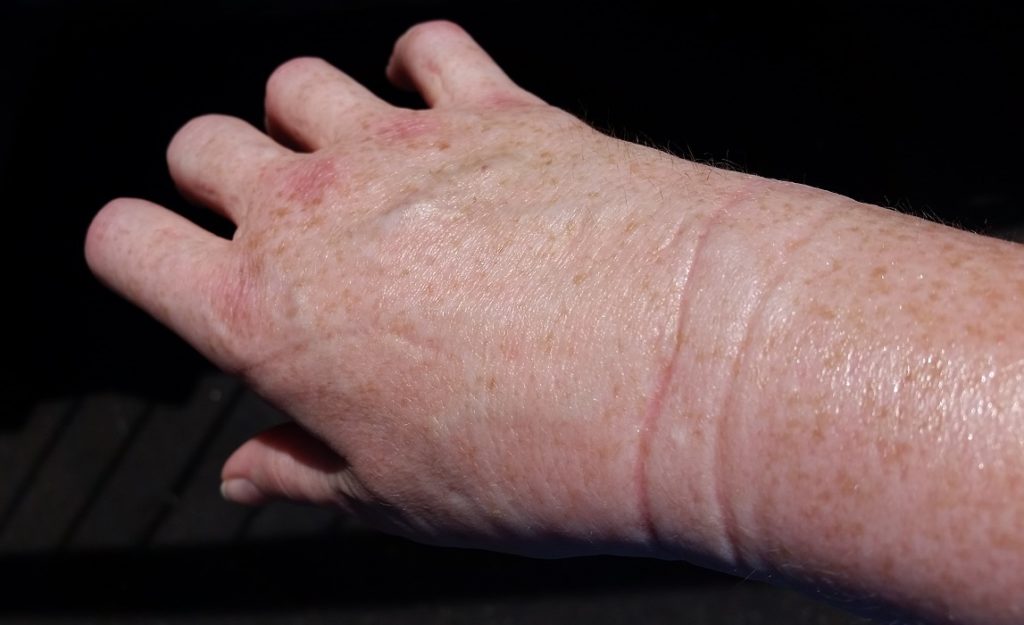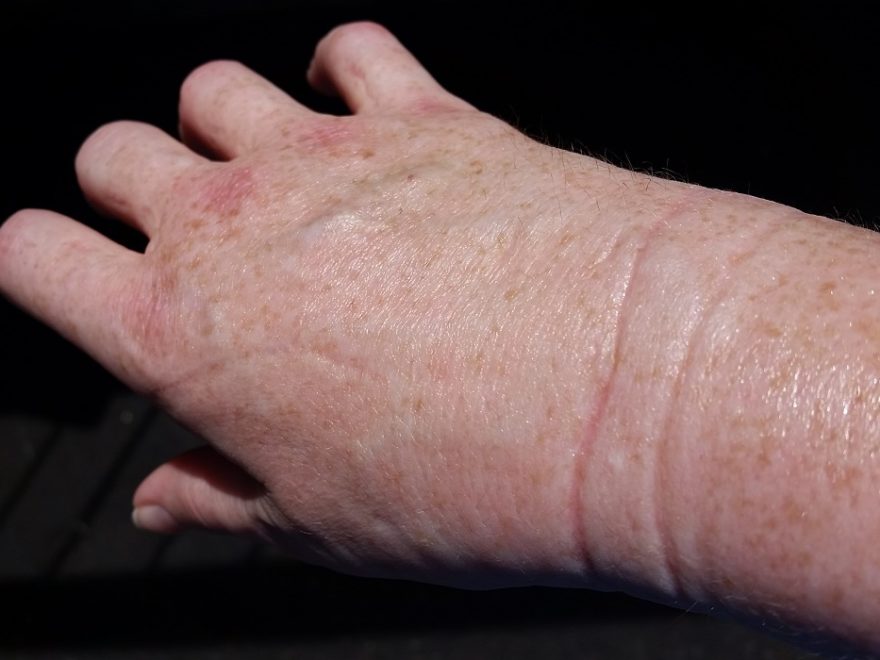The cast finally came off my injured arm in mid-April 2016. For the next 6 weeks I struggled to make the orthopaedic surgeon understand that something wasn’t right. The physiotherapy (PT) team treating me post-fracture agreed that something was still wrong with my hand and arm.
These problems included the three different types of pain – much worse than the original fracture – that I’d already told him about when the cast was still on my arm.
The new symptoms included stiffness or rigidity in all of the finger joints of my right hand, and what looked like red stripes of inflammation across all these joints. This had all started in my fingertips when I still had the cast on, and was progressively moving further up my arm every week.

I work in bioethics, protecting patients’ rights, but despite this background I just couldn’t find a way to get through to this physician. At one point I went as far as to call the hospital during his vacation, and asked to see another physician in the orthopaedic department; my request was refused.
During this same period I’d been laid-off from a permanent position in a wave of job cuts and corporate restructuring. Then I’d started a new contract position the week after the cast was removed from my arm. I was struggling to keep working through the pain, and at one point had to stop eating every day – until I got home from work – because I’d vomit every time I had an unexpected “flare” of pain… the offices were carpeted.
The good news was that fasting all day really wasn’t much of a hardship, because the pain was so intense that I didn’t have much appetite! When she realized that I was fasting all day at work, to avoid vomiting from pain, the Director of my PT clinic wrote a letter – and put it in a sealed envelope – for me to give to the orthopedic surgeon.
She had me make yet another appointment with him at the hospital, to bring him this letter. There’s no charge for hospital visits, in Québec’s publicly-funded healthcare system, but I’d been made to feel that I was wasting the specialist’s time. And that I was taking his time away from other patients who really needed his expertise – so I really didn’t want to see him again.
I gave the envelope from the PT clinic to the orthopaedic surgeon, and after he read it he brought in another physician from the orthopaedic department into the examination room. This new physician asked me 3 questions, said 3 letters, and left the room. I don’t recall whether he was even introduced to me; I left the appointment somewhat in shock…
After hearing those 3 letters, spoken by his colleague, my previously dismissive orthopaedic surgeon suddenly became very attentive. He spent several minutes on the phone; setting up a next-day, Friday, emergency appointment for me with another specialist at the same hospital.
He didn’t tell me what type of specialist I’d be seeing at 1115 the next morning, or what the diagnosis meant. Instead he wrote 3 words onto a slip of paper, and handed it to me with his advice to “Google this”. I later found out that one of these words was misspelled.
All he told me was that the specialist I’d be seeing the next day would probably give me an injection – into my hand – which would relieve my pain.
I finally had a diagnosis, but didn’t yet realize what its impact would be on my life.

